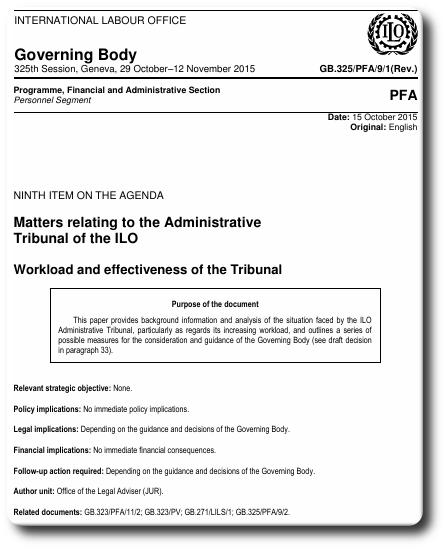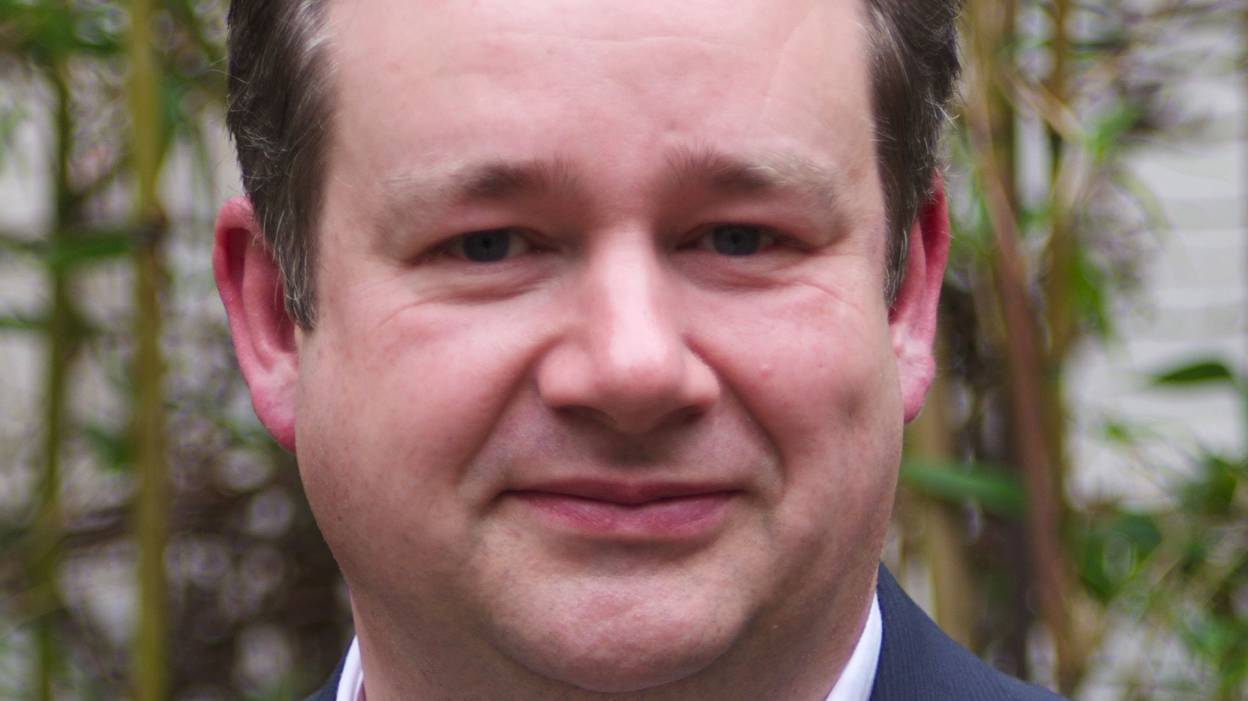12.02.16
Relocating the Boards of Appeal to Haar is a Poisonous Priority at Battistelli’s EPO

Reference: Haar, Bavaria
Summary: Revisiting Battistelli’s effort to chop off the appeal boards that are necessary for ensuring patent quality at the EPO
THE EPO has this new announcement today (warning: epo.org link): “In its order for decision G1/15, related to the question of partial priorities and so-called toxic divisionals, the Enlarged Board of the EPO held that a generic claim encompassing alternative subject matter may not be refused partial priority, provided the alternative subject matter has been directly, at least implicitly, and unambiguously disclosed in the priority document. The reasoned decision will follow.”
This was actually covered earlier this week at IP Kat, under “BREAKING: Antidote found for poisonous priorities” and to quote:
The Enlarged Board of Appeal at the EPO has issued its order in case G 1/15, but not yet its decision. From the order, it appears that poisonous priorities have been neutralised.
The thing about the Enlarged Board of Appeal, an essential collective of judges and specialists, is that Battistelli wants them eliminated (but cannot because of the EPC).
Based on this week’s exceptional ILO decisions on EPO cases, which turned out to confirm that the EPO offers no justice, anything involving ‘justice’ against the judge from the Boards of Appeal should immediately be disregarded. While we haven’t really touched this subject in a while, there were some discussions about it at IP Kat and these are worth bringing to light (because many of the comments are Internet trolls and people feeding the trolls, which makes it hard to find the “signal” in the “noise”).
Responding to one of the parts (a two-part series from Merpel), one person wrote the following:
The question is: if it is necessary to separate physically the premises of the BoA from those used by the upper management of the EPO, why not relocating the latter to Haar instead? It would be far less inconvenient to all parties external to the EPO, Monsieur le Président would no longer need bodyguards to watch over his bicycle, and if the premises in Haar turned to lack space to accomodate the increasing amount of people working in said upper management, I’m sure that a nice white, padded room could be found for him in the nearby hospital…
The move to Haar — or the suggestion of Vienna beforehand — was always ludicrous. It seems like a clear punishment. It’s not about geography but the symbolism. One person focuses on logistics alone:
I can’t see the issue myself. Haar is only a few stops away on the S4 from the Ostbahnhof, so would be easy to get to from the centre or from the Airport. The proposed building is only a short walk away from the station. Obviously there will be grumbles about room layout and space, but there will surely be some reorganising to do anyway. Perhaps there is such a level of animosity that any suggestion, however, sensible, will always be objected to?
As the following put it, this was “primarily symbolic and designed to be irritating.”
How many parties go straight from the airport to a BoA hearing?
In any case, it is primarily symbolic and designed to be irritating. Oral proceedings before DG1 in the city, before DG3 in the suburbs. I’d be curious about how many legal bodies meet in areas outside cities. Isn’t the UPC court in London to be in Aldgate rather than Hounslow (next to Heathrow for non-local readers)?
We have heard that the intention might be to actually rent out the vacant space in the Isar Building and pay for some space in Haar, which (if true) would be absolutely ridiculous! Here is a long and somewhat informative comment:
So, the President will take over the Isar Building while DG3 is shunted off to the building out on the edge of town next to its hospital for the mentally sick.
I wonder now, how many international visitors to the EPO turn up, every working day of the year, to visit the EPO President?
And how many come to Munich for a Hearing before one of the Boards of Appeal, their professional interest and reason for visiting Munich being to find out whether a patent survives or falls, in one fell swoop, in anything up to 38 Member States and 600+ million consumers.
The justice which the EPO dispenses, at DG3 level, is of pan-European shareholder interest to all the world’s Global Titans. Yet, in a fit of vindictive pique, the EPO’s increasingly out of control President runs it out of town, making it sit like a vagrant on the edge of town, next to the hospital for the town’s mentally sick.
Given the amount of schmoozing BB does, in Davos and other places, with the World’s Top People, you would think the EPO’s current President would want for DG3 (the jewel in his crown) a smart and efficient place of business right in the heart of impressive Munich, where pan-European justice is dispensed efficiently and expeditiously.
Unless, that is, a majority of AC members want to see the EPO decline. If this attitude is representative of the mainland Europe of today, no wonder the UK wants out!
One person notes, pointing to the actual document, that this is likely irreversible at this stage (technically it is not):
I think it has already been approved. See CA/88/16 (23.09.2016)
https://www.epo.org/modules/epoweb/acdocument/epoweb2/232/en/CA-88-16_en.pdf
Then returns the debate about Haar’s reputation for its hospital/s for the mentally-troubled:
Mental health is a serious disease. Sufferers are know to throw themselves out of buildings, including those of the EPO.
Don’t trivialize it with puerile, insensitive comments.
This led to a somewhat distracting long debate about sensitivities, but still, some people insist it relates to the symbolism of this whole move:
Indeed, mental health problems should not be trivialized but it nevertheless remains that to a resident of Munich, the phrase “nach Haar schicken” does have the meaning of having someone detained in the mental health hospital there.
And in response to the above:
That’s ok then. As long as such comments are acceptable in Germany, it must be ok to make jokes at the expense of the mentally ill.
A UK equivalent for those who are less familiar with German culture and history:
I’m not sure that a joke was intended or made. If the UKIPO was transferred to Broadmoor, I think every Brit would recognise the location’s notoriety and would explain the cultural significance to any non-Brit.
Since you object , I will leave it to readers to work out for themselves what Broadmoor is famous for.
Quoting the Web site broadmoor.com, another person writes: “The Broadmoor is a AAA Five-Diamond resort in Colorado Springs, CO featuring an award winning spa, championship golf, meeting facilities, and much more.”
Another person adds: “Have ye never heard of St. Cadoc’s in Newport?”
“If BB was a Scotsman he’d send them all off to Carstairs,” says another person.
“As the local saying goes,” one person notes, “Lieber ein Haar in der Suppe als Suppe im Haar”.
Also this:
Glad to see that Tufty is at one with the president on this. Well done. And with all your appeals not to denigrate Haar, in Munich (and probably the rest of Bavaria, “sending someone to Haar” has the meaning desrcibed above – and you can’t change that! Just nice to see that the EPAs like you will also be sent to Haar in future
A more quote-worthy comment:
By the way, I find the denigrating of Haar due to it being the location of a mental hospital somewhat disturbing and in poor taste. If it was any other type of hospital I am sure it wouldn’t even be mentioned.
Some blame it on Merpel:
Tut tut IPKat, you are not doing yourselves any favours by the tone you are using in this report. The downward slide of the quality of writing on IPKat continues.
Your comment that: “Haar is a municipality on the outskirts of Munich, most famous (not that it is famous at all) for housing the largest mental hospital in Germany” is ill-advised, and you should retract it.
Besides, there’s nothing wrong with Haar. It’s going to be a lot easier getting to Haar from Munich airport than to anywhere in the centre of the City.
Putting aside this discussion about what the name Haar brings to people’s minds, Tufty the Cat got mentioned as follows:
Tufty the Cat presents the workaday, utilitarian view. It is a fallacy.
An Appeal Court on an industrial estate – how modern. Lunch at the kebab van. Taxi to and from the Airport Hotel. Nothing to see here, and it should get the expense bill down too. That’ll wash well at the next IPO conference in the US. Trebles all round.
If you look a little more deeply, the change should worry all EPAs.
The BoA will lose intangibles like the proximity to cultural venues, nice Restaurants, proximity to academic and judicial communities like the Max Planck IP law Institute, the LMU / TUM, the Munich courts. If you think that these points of Judicial sociology are details, don’t forget that 17th century judges mixed in London with people like John Locke, and perhaps that helped them to realize that the idea of a sovereign monopoly might just be put to good use in defence of the product of human minds. So the location of the Judges is important.
For Attorneys, what about the nice Restaurants and Hotels? many American clients love the chance to see Munich on their visits to BoA hearings…). Is a stay at the Airport Hotel and a taxi rise to and from quite the same thing? A Price cannot be put on such intangibles, and the EPO/AC Management only have the blunt managerial Tools of timeliness, total Appeals filed, total Appeals disposed. The intangibles don’t matter to them.
But what is explicitly happening, by design of the senior management, is a demotion of the BoA in the European legal order. In ten years, will the best minds apply to work there? Will seats in the BoA increasingly be filled by people who at one time wouldn’t have stood a chance? Will the BoA just become a glorified second examination instance in an industrial estate?
Once this happens, it will filter down to affect the reputation of EPAs. Our solicitor colleagues get to advocate in the nice city centre venue. EPAs will be left with a tin shed in a windy car park, and not forgetting the kebab van.
What would be the point in bothering anymore? Just file nationally.
And this is by design. BB is thinking 6 steps ahead of everybody else – you have to hand it to him.
It’s tempting to follow Tufty’s utilitarian approach, but the way that a society publically treats its judges illustrates the importance that society places on them. That is why, in the UK, they are so well paid. They cannot return to the free profession afterwards.
We need to view the move from the Isar building to Haar as a demotion of the calling of all IP professionals.
It then got the discussion more or less back on track, with comments including the following:
The new building in Haar is farer (you must take the S6 in addition to the S8) and there are no hotels close to it.
It is clearly a punishment for the BoAs, which affects also all EPAs. Fewer and smaller rooms for OPs too.
Anyway Haar is still nicer than Rijswijk.
The German AC delegation will perk its ears again when the Berlin EPO staff will be moved to Munich, this following the removal of the BoA to Haar. Why has this option not been mentioned in the AC document, bit of money saving…?
The EPO is moving in a very strange way. The root is, is my opinion, that the AC is not able to supervise the EPO, let alone decide what the AC wants and how this aim should be reached. A political question.
The Boards of Appeal move is, excuse the expression, simply insane. The only proper way is a change to the EPC. The documents were worked out back in the ’90, but never implemented. In the “recent” revision 1999, the Boards were not taken up, likely because the location of the Boards would not have been sorted out. A political question.
Now, the EPO has a President not respecting any orders. That should not have come as a surprise, considering the track record. The President very early publicly stated that getting elected is very difficult, but getting thrown out would require an earthquake “un tremblement de terre”. Wise words indeed.
Whether the facilities in Haar are suitable – they are not – is irrelevant for the discussion. The President threatened the Boards, intervened in their functioning and exerted such pressure as to infringe their judicial independence. A strong signal, as Merpel says, would be needed to put the President back in his place. The AC will not send such signal, and if the AC did, the President would ignore it. A political question.
Considering all facts, it is evident that the Boards shall be punished by moving them out of the Isar building. Cost, usability, impact on representatives/applicants, etc.: this is not relevant. It is a demonstration of power, period. The fact that Haar is known for its mental asylum fits quite nicely.
I would be very surprised if the move to Haar were stopped.
“They would have reason to be more cooperative before the first instance or simply renounce to thrash applications which are the vast majority,” writes the following person. “The boards are really redundant.” Well, Battisetlli tries to make it so with the UPC.
Well, they are lucky. There are less sexy addresses close to Munich, or would you want to have Dachau printed on your business card? The hearing room situation will be alleviated by bringing the appeal fees to a reasonable level,with drastically dropping numbers in appeals. The present rate is far too low. With the insane jurisprudence of the Boas to allow very late amendments and auxiliary requests and remitting them to the first instance, the appeal fee is a boon. For a thousand or so bucks you buy some 5 – 10 years in which you keep the applicafion alive without having to reply to pertinent but burdensome letters from examiners which might find their way into parallel proceedings in really important patent jurisdictions like the US. An appeal is much cheaper than a divisional und you may still file a divisional throughout the appeal even if it goes wrong, another BOA absurdity.
Once the fees are increased the appeals stemming from examination will dwindle. This would also increase the quality of granted patents when applicants could not be sure to get a second chance, despite the high fees. They would have reason to be more cooperative before the first instance or simply renounce to thrash applications which are the vast majority,
The boards are really redundant. There is no reason to provide a second level administrative review . With the UPC the European Patent Courts should not only deal with infringement and nullity but also appeal on examination and opposition. The higher cost would avoid abuse in either case. A “court” which is not even able to publish their own verdicts other than on Wikipedia and ipkat does not deserve a more prestiguous location. Afterall Karlsruhe, a rather modest place, is good enough for Germany’s constitutional court and a dreary place like Brussels good enough for the EU.
“Well of course there will be the shiny new UPC to send our revocation work,” writes this person. To quote:
Tufty thinks that “any suggestion, however, sensible, will always be objected to” but I wonder what exactly is sensible about moving the boards from a properly-appointed well-functioning building to one which is less well-appointed and downright inconvenient for all. This is not to mention the disruption to the boards and their staff.
There is nothing sensible about any of this and it has nothing to do with independence since only the wilfully blind would think that geographical distance = judicial independence. No, instead it (relocation and the freeze on new hires) has everything to do with (a) punishment and (b) deliberate downgrading of the boards, as Bottom Feeder has suggested above.
What will happen in future years – with oppositions dumbed-down (sorry “expedited” – but why by the way, since it won’t decrease the number of pending applications?) and the boards seriously weakened and seen as second rate, out in the sticks? Well of course there will be the shiny new UPC to send our revocation work – no need to bother with the quick-and-dirty expedited opposition and the appeal which will take 5 years. No sir – straight to the UPC. Is this one possible endgame?
We find it rather interesting that when people bring up mental health issues in relation to Haar (and the EPO) people say it’s insensitive. Like Battistelli himself. Sure, it does no favour to the place, but then again, the stigma is now somewhat of a cultural issue.
To finish it all, here is a little poem someone wrote about this whole situation:
Bringbackalib. Says…
B oards of Appeal bit the hand that feeded
A Haar of the dog now urgently needed
N ot only exiled out to the sticks
I t’s a ramshackle,depleted unit,a bit short of chicks
S uch wanton destruction at one man’s whim
H is cup runneth over,it’s looking grim
E benezer Scrooge said’What the Dickens?’ Giving a shrug
D oubtless Batters retorted with ‘Bah,Humbug!’
The fate of the boards doesn’t look too promising and it may also depend on the UPC — a subject we’ll revisit this weekend. █





















 Content is available under CC-BY-SA
Content is available under CC-BY-SA